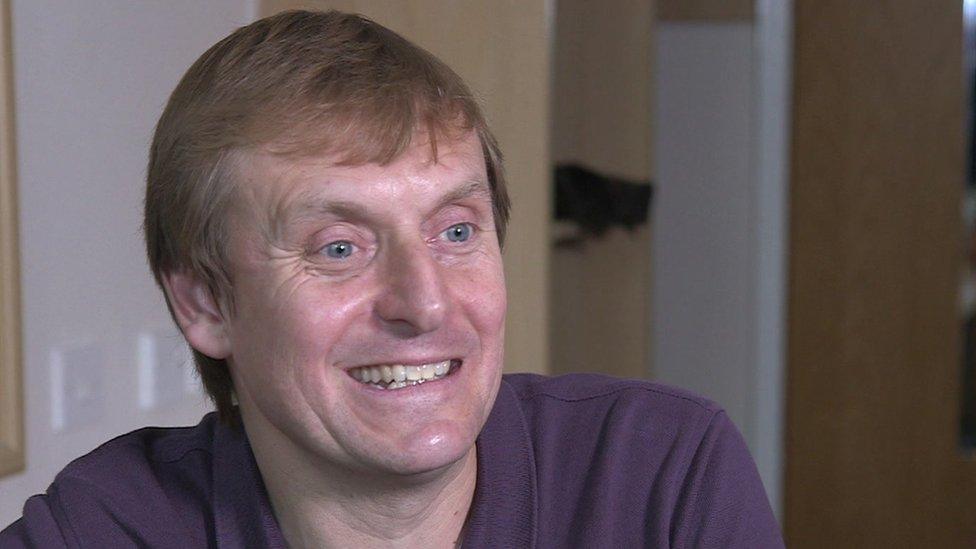'How my mother's organ donations brought new friendships'
- Published
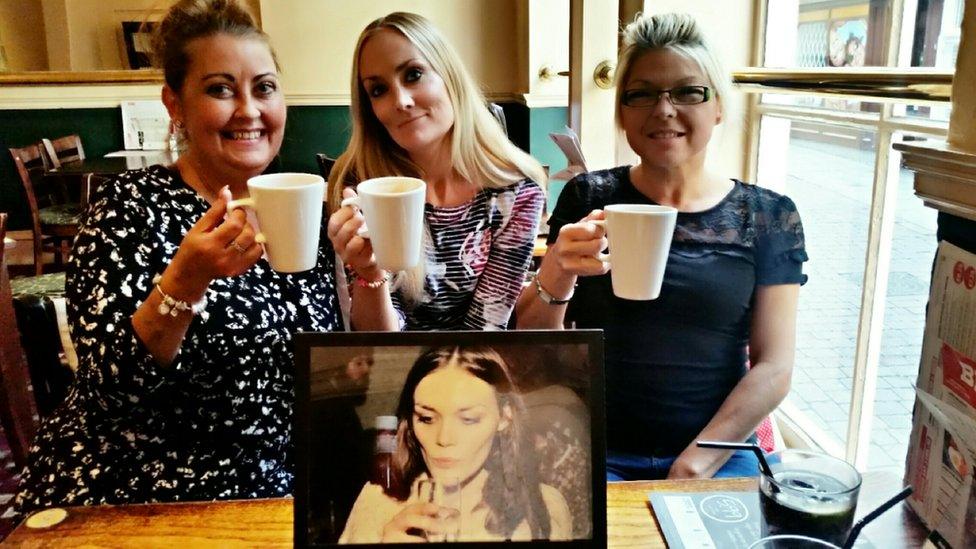
Ella (pictured, centre) has made two lifelong friends thanks to her late mother's organ donations
When her mother died in 2013, Ella decided her organs should be donated in the hope of saving the lives of others. It has led to several successful transplants and two wonderful friendships. Now Ella is hoping to donate to one of the same women as her mother.
Ella Murtha had always hoped the recipients of her late mother's organs would contact her, and that it might bring some form of closure. But she never expected to gain such strong friendships.
"I hoped I'd hear something when I agreed to be contacted [by the recipients], but I didn't know," she tells the BBC's Victoria Derbyshire programme.
Her mother Tish died unexpectedly in 2013 following a ruptured brain aneurysm, aged 56. Despite her not being on the organ donor list, Ella felt that it was right for her organs to be passed on.
Tish's heart, kidney, pancreas, liver, eye tissue and lungs were all donated, leading to successful transplants that doctors said saved the lives of four women and the eyesight of four men.
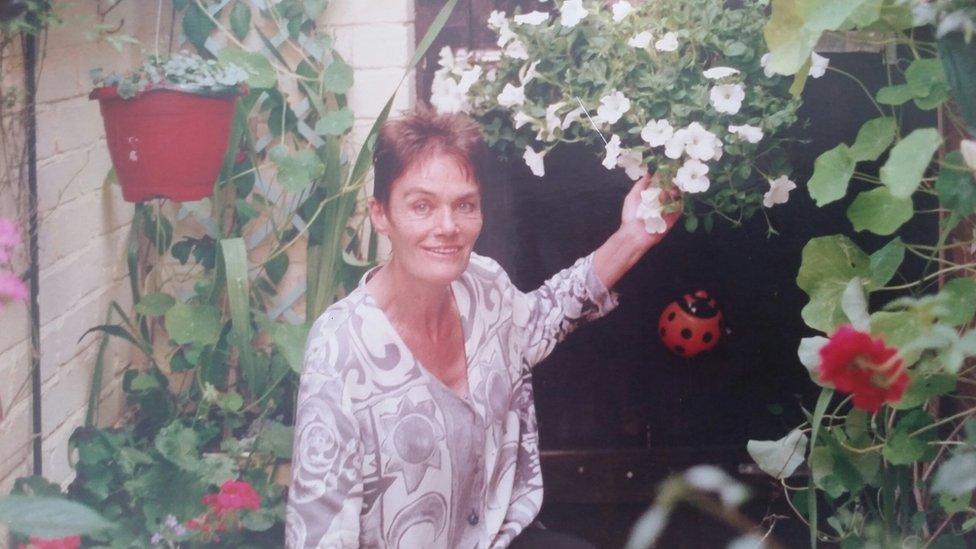
Ella's mother Tish died in 2013
Many organ donors never have the opportunity to meet the person, or people, whose lives they have changed for the better.
The recipient's identity remains confidential, although a thank-you letter can often be passed on via a transplant co-ordinator.
For six months Ella, from Stockton-on-Tees, County Durham, heard nothing back. But then two letters arrived on her doorstep in the same week.
Teresa Saunders, from Reading, was one of those who decided to write, wanting to express her gratitude for receiving a kidney and pancreas.
Three years earlier her diabetes had caused her kidneys to fail when she became pregnant, and she had been placed on a waiting list.
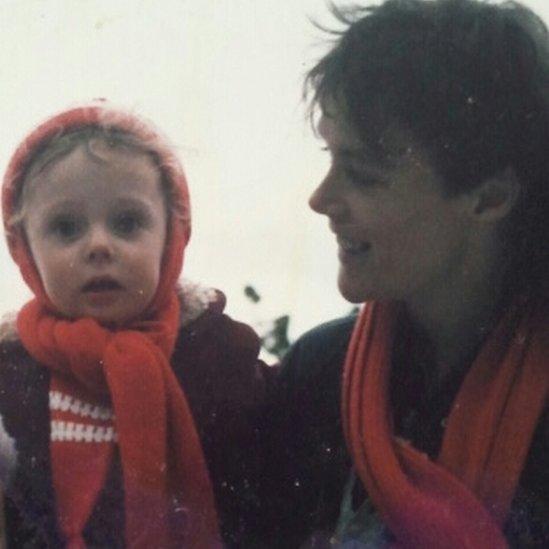
Ella with her mother
After the operation Teresa waited about five months before writing to Ella, in order "to fully recover and make sure I was well and the organs were OK".
Jane Holmes, of Hornsea, East Yorkshire, also decided to write. She was in a wheelchair and had struggled to breathe since being diagnosed with pulmonary hypertension.
"I wanted Ella to know what her decision had gone on to do - to help save a mum with four children," she explains.
"Initially it's like the lungs came off the shelf - it's clinical and you don't attach people to it.
"But when you start getting better you want to thank people for it, and you think you visualise the person."
The pair exchanged letters, but their friendship began to blossom when Jane's daughter Maisie sent Ella a Christmas card.
Aged eight at the time, Maisie had thought Ella might be lonely without her mother, and wrote a card that read: "Thank you for letting your mum save my mum's life."
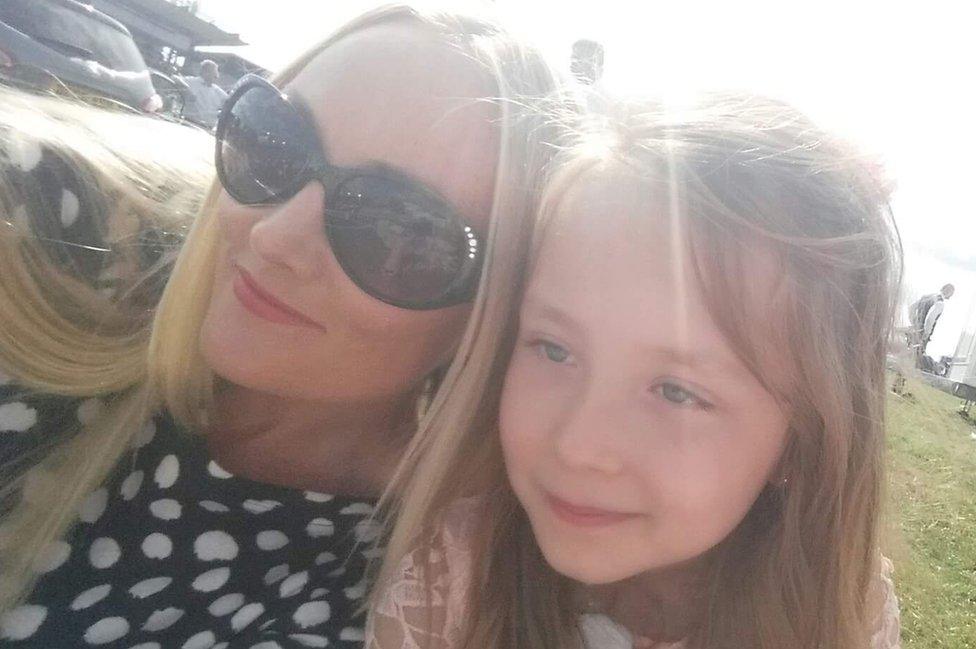
Maisie sent a letter to Ella, thanking her for helping to save her mother's life
On the anniversary of Jane receiving her new lungs, the three women decided to meet, saying it felt like a natural progression.
"It sounds funny but we are like sisters because we have this bond - even like I'd known them for years," Teresa said.
"I feel really lucky," Ella said. "It's so hard to explain it because I see them like family, but almost special friends that my mum has introduced me to.
"Teresa and Jane share my mum's organs and that's a special bond as well. For whatever reason, we're meant to be in each other's life."
The women speak almost every day, but the connection between them may yet grow stronger.
Teresa's new kidney is deteriorating, meaning she will require a replacement.
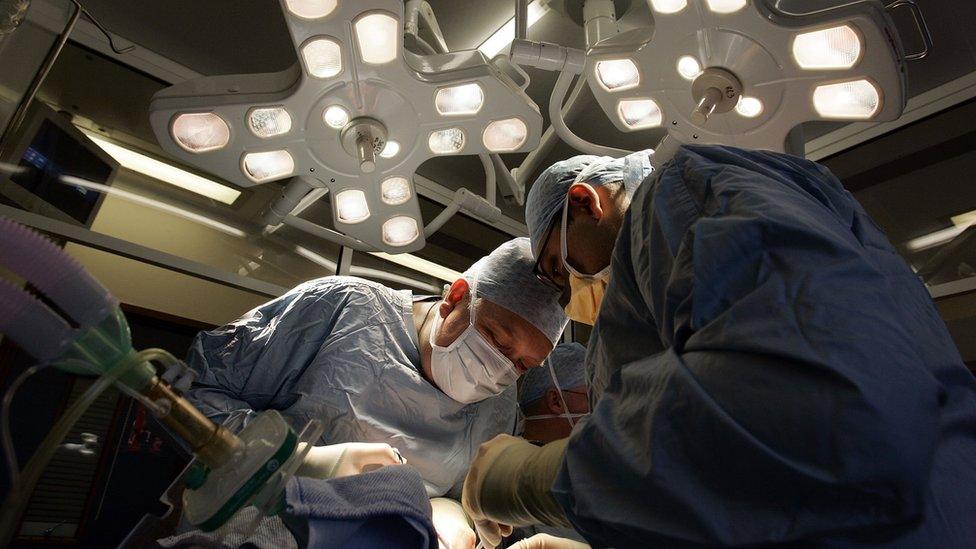
About 3,000 kidney transplants are carried out each year
In up to 90% of cases, a kidney transplant lasts for five or more years. In this instance doctors believe Teresa needs a replacement kidney from a living donor - and Ella hopes to follow in her mother's footsteps by donating her own organ.
She has undertaken tests to see if their tissue types are compatible. It may not be possible for Ella to donate, but Teresa says she is "overwhelmed" by her kindness and knows she can rely on Ella's emotional support.
The three friends are currently fundraising for Jane's daughter Maisie, who has cerebral palsy, to have an operation to help her walk.
Watch the Victoria Derbyshire programme on weekdays between 09:00 and 11:00 on BBC Two and the BBC News channel.
- Published17 January 2017
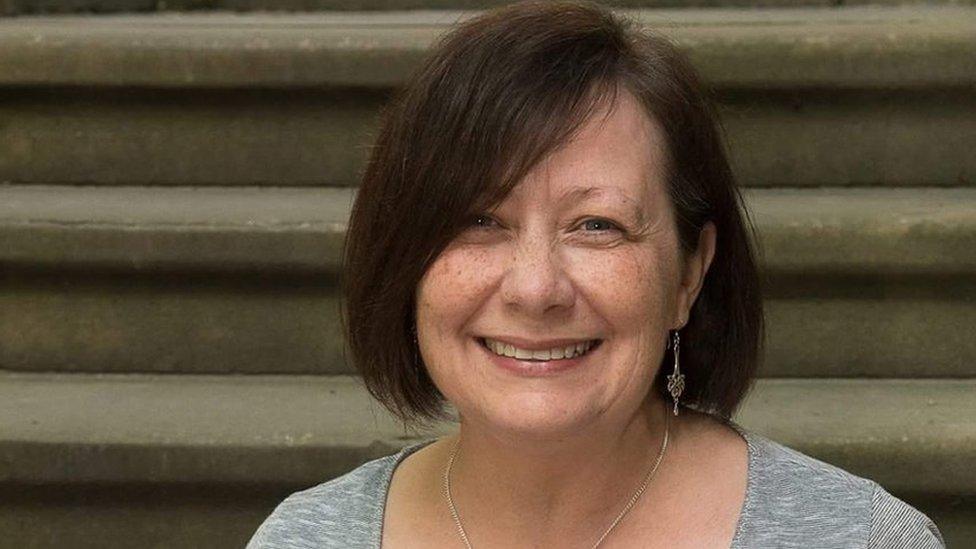
- Published13 January 2016
